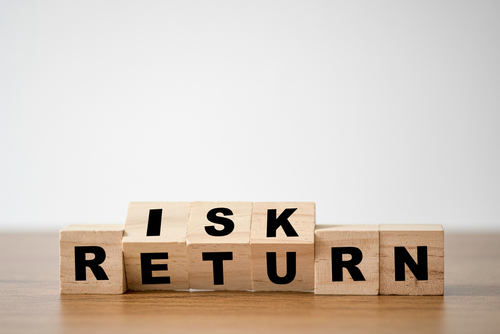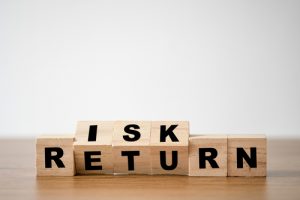
Real estate investments are a great way to earn income and build generational wealth. After all, there are several benefits to buying and renting rental properties. However, that doesn’t mean every investor will succeed. Like any industry, there are several real estate investment risks to be aware of. This article will cover some of the most common investment risks and how investors can avoid them.
Contents of This Article:
- What are Real Estate Investment Risks?
- Identifying Different Types of Investment Risks
- How to Avoid Real Estate Investment Risks
- Avoid Major Risks With Property Management
What are Real Estate Investment Risks?
Whether you’re an investor, landlord, or Northern Virginia property manager, it’s essential to be aware of potential real estate investment risks.
Real estate is generally a top investment choice for people who want to earn significant profits. However, that doesn’t mean that there isn’t risk involved. While owning rental properties is generally safe, not every investor will succeed in the highly competitive real estate market.
Whether you’re dealing with bad tenants, high vacancy rates, or unpredictable markets, these issues can be incredibly frustrating. So, aside from being aware of them, you’ll also want to avoid them. But, first, let’s identify some different types of real estate investment risks.
Identifying Different Types of Investment Risks
Knowing the potential risks of buying investment properties is crucial before diving into any rental business. After all, you don’t want to be left in a situation where you invest time and money with nothing in return. So, here are some of the most common types of risks you may endure while buying rental properties.

- Unpredictable Markets
- High Vacancy Rates
- Negative Cash Flow
- Hidden Structural Issues
- Bad Tenants
Unpredictable Markets
One of the major risks of real estate investing is the unpredictability of the market. As we all know from the past few years, the real estate market fluctuates heavily depending on economic factors. Furthermore, the market can shift due to high-interest rates, changes in the population, and more.
As such, before buying rental properties, it’s important to do extensive market research to ensure you’ll have the desired demand. After all, you don’t want to get into a situation where you’re forced to sell your property for less than you bought it.
High Vacancy Rates
Another significant risk for rental property owners is high vacancy rates. A vacancy occurs when you have empty rental properties that aren’t generating income. However, simply owning rental properties doesn’t guarantee tenants. As such, you may experience vacancies.
Most landlords use rental income to cover property expenses and keep the remaining amount as profit. Unfortunately, when you don’t have tenants in your properties paying rent, you’re not earning money. Instead, you could potentially lose money.
Negative Cash Flow
The goal of investing in real estate is to earn positive cash flow after paying off all expenses. However, it’s possible to generate a negative cash flow instead of a positive one. Generally, this happens when costs such as taxes, mortgage payments, and maintenance are higher than your rental income.
Hidden Structural Issues
Without a thorough inspection, you could end up with a property with major structural issues. Some problems are hard to detect with just a walk-through of the property. So, it’s crucial to have a licensed inspector go through the property before you buy it. Unfortunately, structural damage can be very costly, as you have to pay for repairs and maintenance.
Bad Tenants

Finding tenants is an important part of owning rental properties. However, you don’t want just anyone living in your properties. After all, having a bad tenant could be even worse than not having a tenant at all.
While vacancies mean no rental income, bad tenants may refuse to pay rent for several months in a row or damage your rental property. In turn, you’ll have to deal with the eviction process, which is costly and time-consuming.
How to Avoid Real Estate Investment Risks
Now that we’ve gone over some of the major real estate investment risks, it’s important to know how to avoid them. So here are some best practices for investors that don’t want to run into any major rental issues.
- Conduct Thorough Tenant Screening
- Look for Areas With High Demand
- Diversify Your Portfolio
- Conduct Regular Inspections
Conduct Thorough Tenant Screening
If you want to avoid dealing with bad tenants, it’s crucial to have a thorough tenant screening process. Generally, landlords or property managers screen tenants to look at their credit score, rental history, proof of income, and criminal background.
You also may request references from previous landlords. If a prospective tenant has had prior evictions or several lease violations, it’s a major red flag.
Look for Areas With High Demand

One way to avoid vacancies and keep good tenants in your rentals is to look for areas with high demand. High-demand locations are generally safe investment choices, as you have more people interested in your rentals. In addition, safe neighborhoods with plenty of nearby amenities are best to look into.
It’s crucial to perform a thorough real estate analysis and stay up to date with market changes. Before buying any rental properties, make sure you look at the demand and vacancy rates of several different locations.
Diversify Your Portfolio
Another way to avoid the effects of harsh market changes is by diversifying your investment portfolio. You could lose out on potential opportunities if you put all your time and money into one location or investment type.
You can diversify your investment portfolio by buying rentals in multiple locations. However, it’s crucial to run a thorough analysis of each location to detect any risks. Additionally, instead of investing in all single-family properties, you could branch out and invest in different types of properties, like multi-family or commercial real estate.
Conduct Regular Inspections
To avoid running into expensive structural property issues, it’s crucial to conduct regular inspections. Additionally, when you own rentals, you should perform a move-in and move-out inspection before and after each tenant. This can help identify large or small damage left by previous tenants.
Avoid Major Risks With Property Management
One of the best ways to avoid most real estate investment risks is with a solid property management team.

Landlords with several rentals may not have the time or energy to tend to every tenant or property. However, management is a crucial part of owning rentals. As such, many busy landlords opt to hire comprehensive property management.
If you’re looking for a top-notch team to assist with your rental business, look no further than Professional Property Management of Northern Virginia. Our team of qualified professionals can help your rental business succeed.
Whether you need help with tenant screening, maintenance, or rent collection, we’ve got you covered. Contact PPM today to learn about our services in Northern Virginia.




Leave a Reply